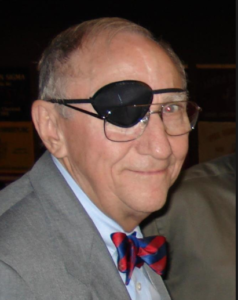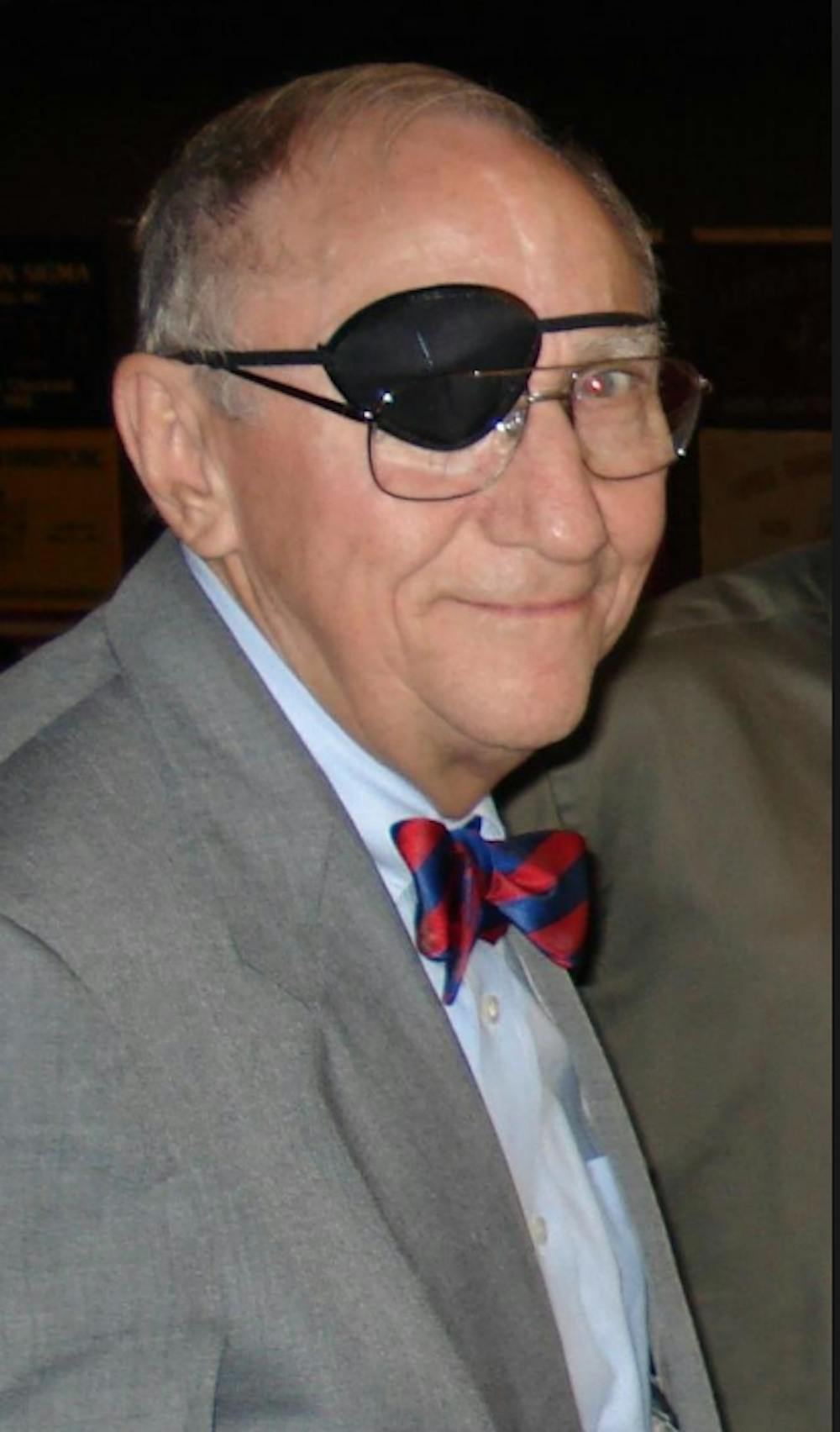By Colleen Rushnak
Staff Writer
Former College President Harold Eickhoff’s name has long been part of the student body’s vocabulary — phrases like “Want to get Eick after class?” or “I live in Eickhoff Hall” are commonplace — yet many students are unaware of the scope of the impact he had on the College.

Eickhoff was president of the College from 1979 to 1998 and played a large role giving the College a more elite reputation. When asked about his favorite part of his presidency, Eickhoff said, “Watching it happen.”
Before his tenure in Ewing, New Jersey, Eickhoff grew up in a much different part of the country. He was born in Kansas and grew up during the Great Depression as the youngest of five children. From a young age, Eickhoff’s mother was his main source of inspiration. Even though his family lived in poverty and lacked electricity and plumbing, her positivity never waned.
“She was one of the most optimistic people I have ever met,” he said. “She believed that life should be joyful.”
Even when she lost two of her sons, one in an accident and the other during World War II, his mother still managed to bounce back after trying times. The lessons he learned from his mother helped him during his time as the College’s leader.
“I believe that from her I got this notion that life should be joyous,” Eickhoff said. “And when I was president, I had to set this tone. It is a way to live — to appear as a person who believed that education should be fulfilling, as hard as it is sometimes.”
Eickhoff was also inspired to devote his career to education by the writing of former U.S. President James Madison.
“If I were to lead to a conclusion that I find that what ails us more than almost anything, it’s the fact that our education system is dysfunctional,” he said. “James Madison said, ‘Knowledge will forever govern ignorance; and the people who mean to govern themselves must be equipped with the power that knowledge gives.’ There it is. Why I found my niche in education.”
Eickhoff received his bachelor’s and master’s degree in history from the University of Kansas City, and a Ph.D in history from the University of Missouri at Columbia. After working at the University of Missouri St. Louis and Old Dominion, he gained administrative experience in every department, from admissions to college financing.
When he was given the opportunity to be the president, his goal became to reform the College with the help of the ambitious Board of Trustees.
Eickhoff and the Board of Trustees set out to create an institution of prepared, high-achieving students who were also committed to living on campus. One of their main goals was to attract attract students from New Jersey who were planning on going to college out of state.
They worked to make the institution small in size, and they placed a great emphasis on the benefits of undergraduate education at a low price.
“We centered on the student and his or her education,” he said. “We saw the student as the center of everything, so we tried to design the campus (so that) students learn as much outside the classroom as they do inside the classroom. The essence of a great college is well-prepared students, eager to learn, and well prepared teachers, eager to teach. That’s when the great stuff happens.”
Although much of Eickhoff’s presidency was about strengthening the institution’s academics and reputation, he is also known for the name change of Trenton State College to The College of New Jersey.
“There was this aversion to stay away from Trenton, and it permeated the campus, especially the Board of Trustees,” he said.
He eventually approached the Board directly about the topic its members took so much issue with.
“In my second year, I got kind of tired of talking about the handicap of Trenton in the name,” he said. “I had finally said to the Board, ‘Do you want to change the name? I will not, as your new president, I think it is a mistake, because you need to give the president a chance to get his feet on the ground, and to know why it is that people just don’t like Trenton.’”
According to Eickhoff, this was decision not easily made, and it also came with a variety of repercussions.
“It didn’t go away. It kept gnawing at us,” he said. “It was a tough sell, because people thought of us as in the middle of Trenton. I knew it, but I knew it especially from a man who wrote for the Trenton Times... He would say over and over again, ‘You’re losing people, good people, who never get past the name Trenton.’ It wasn’t a single decision— it was a knowing the trustees had set out to create an institution that was not in service to Trenton, but in service to the state of New Jersey.”
After the school’s leadership finally decided on its new name, Princeton University filed a lawsuit, since Princeton University was originally named The College of New Jersey However, the university had never copyrighted the name and therefore the suit was eventually dropped.
Eickhoff saw the name change not as a way to distance the school from Trenton, but to open the school to people all over the state.
“The question is that it is part of the College’s mission not to abandon Trenton, but to build an institution that was to serve all of the citizens of New Jersey,” he said. “To be a good neighbor and to be a place where students could learn from and (where) benefits could come from both sides.”
When reflecting on his career at the College, Eickhoff could not help but think of his late wife Rosa, who died in 2015. Rosa was active in the lives of students, and she often invited them over for dinner at the president’s home.
“She never met a stranger,” he said. “She was everybody’s mother.”
One of Eickhoff’s proudest moments was promoting the College to be featured in Money Magazine’s article as the first of the top 10 undervalued institutions at the time.
Trenton State was not an original contender at first, but after a Money Magazine representative’s visit to the College, which was led by a Student Ambassador, it was clear to the publication that Trenton State put students at the center of learning. Not only was the College included in the article, but it was also ranked as the number one institution.
After retiring as president, Eickhoff was not quite done with his career in education. He also spent time in the United Arab Emirates and helped develop a women’s university.
Today, at 90 years old, Eickhoff continues to reside in Pennington, where he reflects on his presidency at what he believes is an extraordinary public institution.







